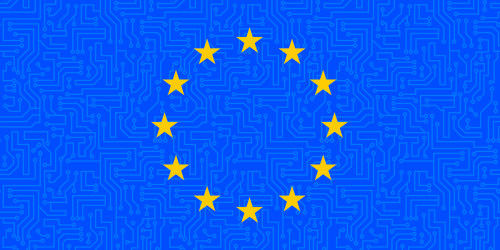New technology offers the promise of speech with minimal barriers and without borders. The Internet has radically enhanced our ability to express ourselves and our ability to access, archive, and share information. Everyone should be able to take advantage of this promise.
Individuals around the world should be able to use new technologies to publish their ideas; criticize those in power; gather and report the news; and make, adapt, and share creative works. Vulnerable communities should be able to safely meet and grow, making themselves heard without being drowned out by the powerful. The ability to freely exchange ideas also benefits innovators, who can use all of their capabilities to build even better tools for their communities and the world.
Standing in the way of that promise are legal, structural, and corporate obstacles. Laws and policies have made chokepoints, enabled censorship regimes, controlled access and use of intellectual property, increased government surveillance, and undermined security and safety. Legislation created by democratic governments has caused collateral damage elsewhere. A few powerful players have an outsized influence on free expression that threatens to homogenize and limit the voices on the Internet. Corporations selectively enforce policies and abuse those structures and laws with the result of censorship and self-censorship.
EFF’s mission is to fight for the promise of free expression offered by new technology and overcome the legal, structural, and corporate obstacles in its way.
Protecting Free Expression Online
We work in the courts and in legislatures in the US and around the world to defend and expand the right to access and share information and expression—including anonymous speech. We defend activists, journalists, news outlets, online forums and archives against government and corporate censorship. We also work to preserve the protections against intermediary liability that have been essential to the growth of the Internet as a forum for expression, because online speech platforms and services can only thrive when they don’t risk severe legal repercussions for their users’ activities.
Recognizing that censorship can take many forms, we go to court to hold rights holders accountable when they abuse copyright and trademark rights to shut down lawful speech and research. And we defend and expand your right to secure, encrypted communications, so that dissenting voices can protect themselves from retaliation from governments and private actors.
Our advocacy isn’t limited to the courtroom. We also work to educate the public and policymakers about the ramifications of proposals that would limit access to information and expression. From working with allies to fight for better policies or against bad laws to advocating for people who build tools that protect speech, EFF’s activism makes sure technology is made and used in the service of free speech.
Empowering Free Expression with New Technologies
EFF also builds tools that enable people to access and express themselves on the Internet securely and anonymously, creates guides and education materials for vulnerable populations to learn about security tools, and embarks on projects to expose governments and corporate actors using malware and other technologies to intercept people’s online communications.
EFF’s projects include browser extensions such as Privacy Badger, which prevents cookies and other tracking devices from tracking you across websites, collecting data about your activities, and then selling or sharing that data with third parties and HTTPS Everywhere, created with the Tor Project, which redirects users to encrypted versions of websites so that outside actors cannot intercept and spy on their web traffic.
Because tools are only useful if people know how to use them, our experts also create guides and training materials for people to help their own communities learn about security. EFF also researches how governments and private actors create, purchase, and use malware, IMSI catchers, and other spying technologies.
As technology grows and changes, it’s important that it not reinforce obstacles to free speech, but allows everyone to share ideas and experiences safely.
Free Speech Topics
- Content Blocking
- Export Controls
- Anonymity
- Big Tech
- Bloggers' Rights
- Community Control of Police Surveillance (CCOPS)
- Corporate Speech Controls
- COVID-19 and Digital Rights
- CyberSLAPP
- Digital Rights and the Black-led Movement Against Police Violence
- Electronic Frontier Alliance
- Financial Censorship
- Government Social Media Blocking
- LGBTQ+
- No Downtime for Free Speech
- Right to Record
- Section 230 of the Communications Decency Act
- Social Media Surveillance
- Speaking Freely
- Wikileaks
- Offline: Imprisoned Bloggers and Technologists








